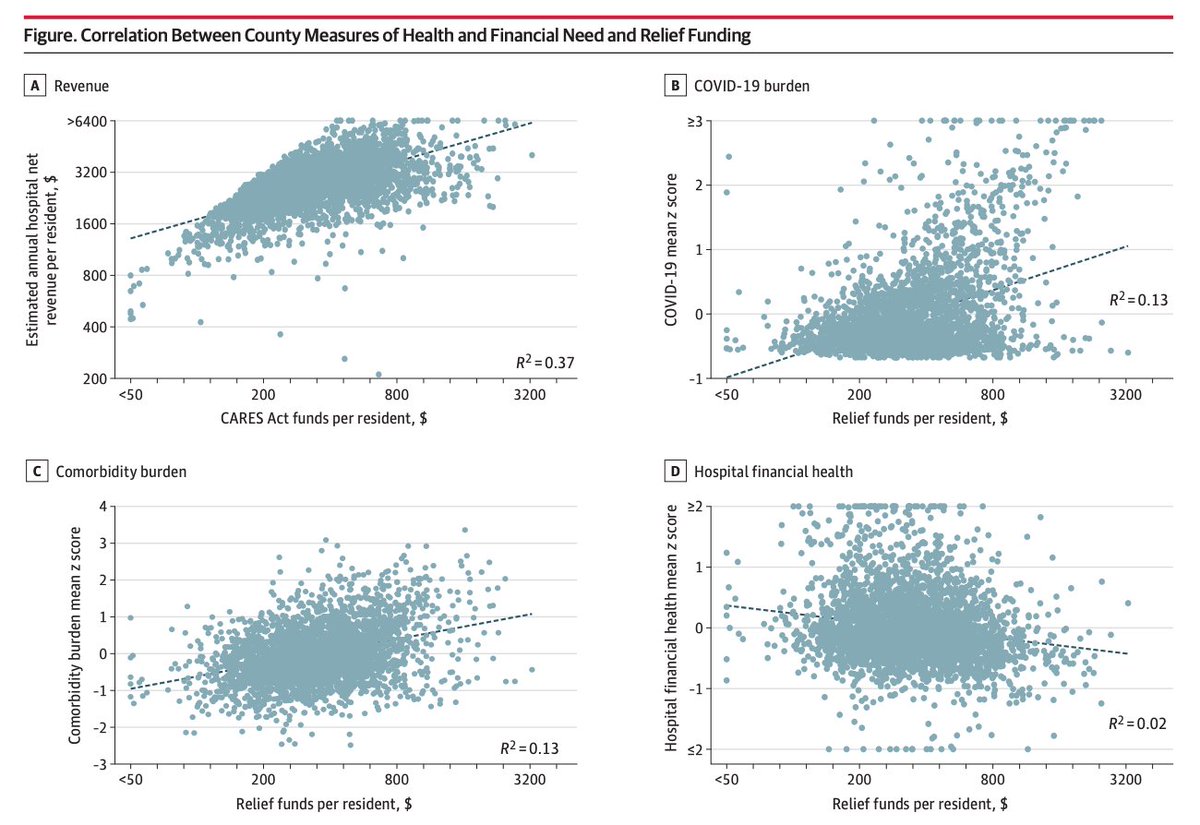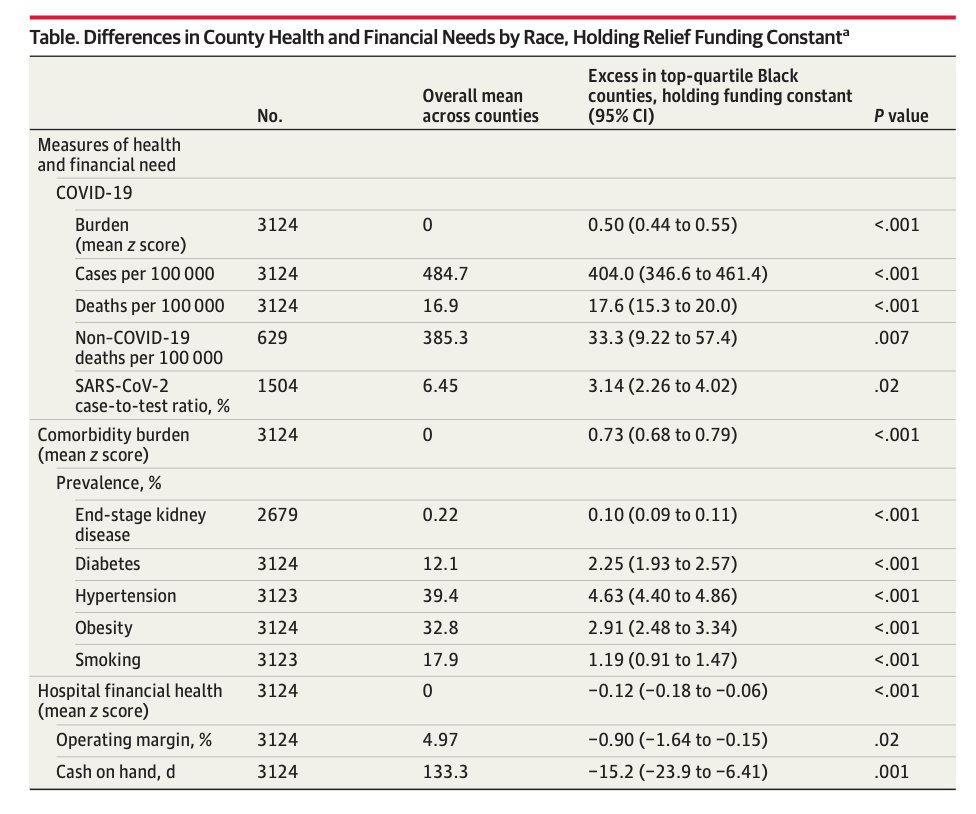We know communities of color suffer most from COVID-19.
The way we’re allocating $175b in relief funding is also biased against them.
Thread on our new paper, led by superstar @pragyakakani (supporting roles: @amitabhchandra2, @m_sendhil, me) https://jamanetwork.com/journals/jama/fullarticle/2769419">https://jamanetwork.com/journals/...
The way we’re allocating $175b in relief funding is also biased against them.
Thread on our new paper, led by superstar @pragyakakani (supporting roles: @amitabhchandra2, @m_sendhil, me) https://jamanetwork.com/journals/jama/fullarticle/2769419">https://jamanetwork.com/journals/...
Federal relief funding is supposed to (1) help hospitals care for COVID-19, and (2) offset $ losses.
That’s the goal of the legislation—
But how to translate that into a concrete way to allocate money?
(As @samirpassi & @s010n note: ‘problem formulation’ is hard)
That’s the goal of the legislation—
But how to translate that into a concrete way to allocate money?
(As @samirpassi & @s010n note: ‘problem formulation’ is hard)
Fact 1: The CARES Act gives money to hospitals mostly as a function of their *past revenue*
But revenue is a poor proxy for need (think high prices, market power, overuse).
That means funding goes to places that *have* money—not places that *need* money.
The rich get richer.
But revenue is a poor proxy for need (think high prices, market power, overuse).
That means funding goes to places that *have* money—not places that *need* money.
The rich get richer.
Fact 2: Funding proportional to revenue is especially unfair to Black communities.
Why?
Black patients generate less revenue for providers, because
1) they lack access, insurance, transportation (like other disadvantaged pts)
2) our health system treats them differently.
Why?
Black patients generate less revenue for providers, because
1) they lack access, insurance, transportation (like other disadvantaged pts)
2) our health system treats them differently.
This might sound familiar—it did to us.
It’s the reason the algorithm we studied here https://tinyurl.com/y532ez56
encoded">https://tinyurl.com/y532ez56&... racial bias:
It predicted health care *costs*, not health *needs*.
(As @math_rachel notes: algorithms, just like policies, need better metrics)
It’s the reason the algorithm we studied here https://tinyurl.com/y532ez56
encoded">https://tinyurl.com/y532ez56&... racial bias:
It predicted health care *costs*, not health *needs*.
(As @math_rachel notes: algorithms, just like policies, need better metrics)
Using health costs as a proxy for health needs is *everywhere* in health policy.
Many Medicare relief programs—DSH, 340B, for example– allocate $billions every year in this way.
Many Medicare relief programs—DSH, 340B, for example– allocate $billions every year in this way.
We need to stop using health *costs* to measure health *needs*.
It’s not just unfair to communities of color—
It’s also inefficient: resources should go where they are most needed
…not where resources already exist.
It’s not just unfair to communities of color—
It’s also inefficient: resources should go where they are most needed
…not where resources already exist.

 Read on Twitter
Read on Twitter



